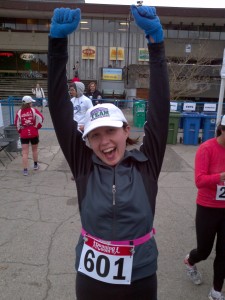While flying to the APS convention in Washington DC today, I was perusing a back-issue of the journal Teaching of Psychology. I came across an interesting article that made me consider a new paper-writing option for my intro psych class. In two studies, the researchers asked intro psych students to upload 16 brief (1-2 paragraph) statements that expanded on one concept from a 10-concept shortlist from each chapter. The paragraphs were graded for completion only (just a check to make sure they were topical), and were then coded for topic choice. Students responded better to midterm exam questions on topics they had previously written about than to questions on topics they had not previously written about–even when students had been told specifically which concepts to write about (Study 2).
What I’m finding particularly intriguing about this study is that (a) students seemed to learn the concepts better after writing about them, (b) the task seems pretty simple and straightforward for students (“What I learned about the concept is…” or “An example of the concept in my life is…”), (c) it may promote strong study habits that can be transferred to other topics and courses, and (d) because it’s ungraded and tracked online, it seems logistically manageable in a very large class.
Indeed, my classes are pretty large (depending on the year/term, they range from 250 to 400 students). Couple that with very limited TA resources, and fitting in writing is always a challenge. Currently I assign one 600-word application-style paper in each term. Recently I added a peer feedback step using peerScholar software, and that worked out pretty well. Informally, students reported learning from reading others’ papers, yet few seemed to revise their work at all, let alone implementing changes based on others’ feedback.
Maybe the assignment in this study could be a worthwhile pursuit. In this research paper, the authors noted that completion of all 16 was worth 10% of the students’ grade. I’m not sure I could offer that just for completion… we have pretty strict grading standards here in UBC Psych. But once I cut it in half (separating term 1 101 from term 2 102) that’s only 5%… that seems more manageable.
I continue to ponder… as I lie awake… on Pacific time… in Eastern timezone.

 Follow
Follow
